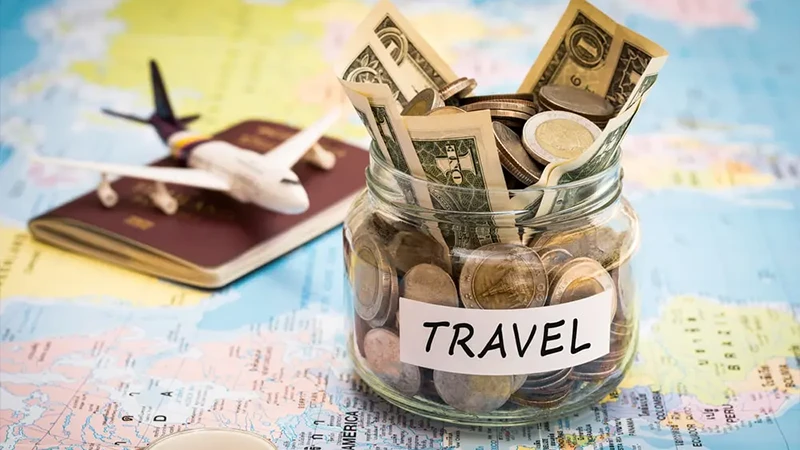When it comes to traveling, guided tours can enhance your journey by providing local expertise, structured itineraries, and the opportunity to explore hidden gems you might miss on your own. However, with so many tour options available—ranging from adventure-filled expeditions to cultural immersions—it can be difficult to know where to begin. How do you choose the right tour for your travel style, interests, and budget?
This guide will walk you through the key factors to consider when choosing the perfect tour, helping you select one that matches your preferences, keeps you safe, and ensures an unforgettable travel experience.
1. Know Your Travel Style
Why It’s Important:
The first step in choosing the right tour is understanding your travel preferences. Some people love adventure and active travel, while others prefer cultural exploration, historical sites, or leisure-focused itineraries. Knowing what type of traveler you are will help narrow down your options.
Key Considerations:
- Adventure vs. Relaxation: Do you want an action-packed vacation that involves hiking, kayaking, or cycling? Or are you seeking a more leisurely experience, such as sightseeing, museum tours, and luxury stays?
- Group Tours vs. Private Tours: Group tours are usually more budget-friendly and allow you to meet new people, but they can be less flexible. Private tours, on the other hand, offer a more tailored experience with greater freedom, but they are often more expensive.
- Independent Travel vs. Guided: If you like freedom and spontaneity, you might prefer to plan your trip independently. However, guided tours offer convenience, local knowledge, and access to unique destinations that might be difficult to reach without a guide.
2. Research Tour Operators and Reviews
Why It’s Important:
The company you book your tour with plays a huge role in the quality of your experience. A reputable tour operator can make your trip seamless, ensuring everything from transportation to accommodations runs smoothly. Researching reviews and gathering recommendations will help you avoid potential issues and find a company you can trust.
Key Considerations:
- Look for Reputable Operators: Well-established tour companies with a good reputation are more likely to provide high-quality services. Popular operators like Intrepid Travel, G Adventures, and Trafalgar offer a wide range of tours with a solid track record.
- Check Online Reviews: Websites like TripAdvisor, Trustpilot, and Google Reviews provide real feedback from travelers who have taken similar tours. Pay attention to common complaints or praises about the tour guide, organization, and customer service.
- Word of Mouth: Ask friends, family, or fellow travelers for personal recommendations. Hearing about someone else’s firsthand experience can provide valuable insight into what you can expect.
3. Consider the Itinerary and Activities
Why It’s Important:
A well-designed itinerary should match your interests, be balanced, and offer enough flexibility to make the most of your trip. Take a close look at the activities, excursions, and time spent in each destination to ensure it aligns with your travel goals.
Key Considerations:
- Duration and Pace: Some tours may pack in a lot of activities in a short period, while others offer a more relaxed pace. If you’re someone who likes to take their time exploring, look for tours that allow for downtime. Alternatively, if you’re an active traveler, a more fast-paced tour might be ideal.
- Included Activities: Make sure the activities included in the tour align with your interests. For example, a food tour in Italy might include cooking classes, wine tastings, and market visits, while a wildlife safari in Africa could feature game drives, birdwatching, and cultural visits.
- Flexibility: Some tours have free time built in so you can explore on your own, while others may have a more structured approach. If you prefer to explore at your own pace, choose a tour with flexibility or a private guide.
- Special Interest Tours: Look for tours that focus on your specific interests, whether it’s history, adventure, wildlife, or cultural immersion. A well-curated themed tour will offer a deeper, more enriching experience.
4. Evaluate Group Size and Tour Type
Why It’s Important:
The size of the group on your tour can greatly affect your experience. Smaller groups often offer a more personalized, intimate experience, while larger groups may feel more like a big, bustling crowd. The right tour size depends on how you prefer to travel and how much interaction you want with your guide and fellow travelers.
Key Considerations:
- Group Tours: Many standard tours are group tours, typically with 10 to 30 participants. Group tours offer social interaction, cost savings, and the opportunity to meet like-minded travelers. However, they can sometimes feel rushed or impersonal.
- Small Group Tours: If you prefer more attention from the guide and a closer-knit experience, a small group tour with less than 10 people might be ideal. Small groups tend to offer more flexibility, personal service, and the ability to visit off-the-beaten-path locations.
- Private Tours: A private tour provides you with your own guide and a customized itinerary, ensuring that the experience is tailored specifically to your needs. While more expensive, private tours offer the highest level of flexibility, comfort, and attention to detail.
5. Consider the Tour’s Price and Inclusions
Why It’s Important:
Budget plays a crucial role in choosing the right tour. It’s important to balance your tour expectations with your financial capacity. Keep in mind that the cheapest tour may not always be the best value, and a high price doesn’t always guarantee a premium experience.
Key Considerations:
- Inclusions: Understand what’s included in the tour price. Some tours may cover everything (accommodation, meals, activities, and transportation), while others may only include basic services, with additional costs for meals, excursions, and tips. Make sure you know exactly what you’re paying for.
- What’s Not Included: Be sure to check for exclusions, such as optional excursions, meals not mentioned, tips, and personal expenses. These add-ons can significantly increase the overall cost of the tour.
- Price Range: While luxury tours tend to be more expensive, budget-friendly options like group tours or backpacker-oriented tours can still provide great experiences without breaking the bank. However, you often get what you pay for, so weigh the costs against the quality of service you’re expecting.
6. Check the Expertise of the Guide
Why It’s Important:
The guide can make or break your tour experience. A knowledgeable, passionate guide adds incredible value by providing context, answering questions, and offering insights into the local culture, history, and environment.
Key Considerations:
- Local Expertise: A good tour guide should be knowledgeable about the local area and culture. They should be able to provide in-depth information that you might not find in guidebooks or online resources.
- Languages Spoken: If you’re traveling to a non-English-speaking destination, make sure the tour guide speaks a language you’re comfortable with. Many operators offer tours in multiple languages, but it’s important to confirm beforehand.
- Personalization: Some guides are excellent at tailoring the tour to your interests, while others may stick to a strict script. If personal interaction is important to you, look for reviews that mention guides who go above and beyond in providing a customized experience.
7. Safety Considerations
Why It’s Important:
Your safety should always be a priority when choosing a tour. Make sure the company you book with has appropriate safety measures in place, especially if the tour involves adventure activities or travel to regions with potential risks.
Key Considerations:
- Insurance: Verify that the tour operator provides travel insurance or has emergency medical coverage, especially if you’re partaking in adventurous activities like hiking, diving, or skiing.
- Health and Safety Standards: Make sure the operator adheres to local safety regulations and guidelines, particularly if you’re traveling to destinations with unique risks (e.g., remote areas or politically unstable regions).
- Emergency Procedures: Check if the tour operator provides clear emergency contact information and how they respond to unexpected situations (e.g., natural disasters, illness, or accidents).
8. Read the Fine Print
Why It’s Important:
Before you commit to a tour, carefully read the terms and conditions to avoid surprises and ensure you’re fully informed about cancellation policies, payment schedules, and other important details.
Key Considerations:
- Cancellation and Refund Policy: Life can be unpredictable, so it’s essential to understand the tour operator’s cancellation and refund policies. Ensure that you can get your money back or reschedule in case of emergencies.
- Payment Terms: Make sure you understand the payment schedule, any deposits required, and the final payment date. Some tours may offer installment payments or discounts for early bookings.
- Itinerary Changes: Tours can sometimes change due to weather, availability, or unforeseen circumstances. Understand what flexibility the operator offers if there are changes to the itinerary or schedule.
Conclusion: Choosing the Right Tour for Your Adventure
Selecting the right tour for your travels involves understanding your preferences, researching reputable operators, and finding a balance between budget, activities, and group dynamics. By carefully considering factors such as your travel style, interests, safety, and the tour’s inclusions, you can ensure that your next tour will be an enriching and unforgettable experience. Whether you’re exploring a new city, hiking through remote landscapes, or immersing yourself in a different culture, the right tour can elevate your journey and provide memories that last a lifetime. Happy travels!








